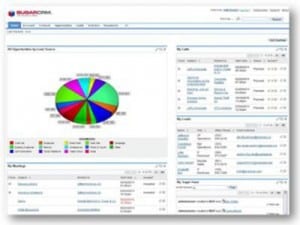Most people in the ERP industry agree that software consultants can play a major role in helping their clients successfully implement a new ERP package. While some consulting firms have more expertise than others do, at least most firms try to operate with their client’s best interest in mind.
However, many firms within the ERP industry are outright thieves. They will not hesitate to take advantage of their clients with consulting games to pad their own wallets. In fact, some firms are so good at this that the practice has become part of their standard operating procedures.
Clients who are educated and aware of the consulting games that some firms play can save themselves a few headaches and a lot of money. Below are some of their tricks to watch out for:
1) The “Bait-and-Switch” Routine
During the sales process, certain consultants are brought in to display the expertise within the firm. They may know best practices and the software, but it might be the last time you ever see them.
2) Resumes: Lies and Half-Truths
Outright falsification of consultant resumes is more common than you think. In addition, many resumes presented by the firm are not actual resumes, but vague “profiles” that lack detail and read like sales literature.
3) “Lowballing” the Quote
This consulting game is the oldest trick in the book, yet a surprising number of clients continue to fall into this trap. For example, all consultants know that for time and material quotes, the actual implementation costs are usually much higher. Also, most fixed price quotes are only fixed until further notice. When the client wants to make only minor changes in the project scope, they are hit with expensive change orders. The change order costs are usually far greater than the actual time for the consultants to perform the work.
4) The “Best” Implementation Tools & Methods
Most firms claim to have the very best implementation methods and tools available. However, do not be surprised when their consultants run off and do something entirely different during the project. Maybe the tools are not so great. Otherwise, their consultants would use them.
5) The Less You Know, the More Money They Make
For some firms, a potential client who has ill-conceived project objectives, an undefined scope, or poor basic knowledge of ERP is considered a gold mine. The idea is to gloss over these “minor” details until after the client signs the contract.
6) Marquee Accounts for Reference Checks
When a potential client asks for a list of the firm’s other clients for a reference check, many firms provide only their “marquee accounts.” These accounts are compensated by the firm in some form for being a reference. Therefore, do not expect these clients to mention anything bad about the firm.
7) Not Enough Time and Talent
Most consulting firms would love to “camp out” on your ERP project. One way to do this is to convince the client that the organization lacks the right employees for the project. Also, some firms too easily support the premise that the client’s best employees have other tasks to perform that are more important than an ERP project. That is, “No need to get your hands dirty. Our consultants will do the project for you.”
8) “Add-on” Services
Once consultants get their foot in the door, many try to sell their clients additional services. These include more consultants for readiness assessments, change management programs, best practices, and other services you may not truly need. Also, do not be surprised when your consultants push for software functionality that was originally out of scope.
9) The Promise of Software Knowledge Transfer
Most firms state that one of their goals is to “work themselves off the project” by transferring software knowledge to the client. However, nine times out of ten, if this is going to happen, the client must force the issue. Considering their hourly rates, what incentives do consultants have to transfer software knowledge?
Keep an eye out for these SAP consulting games to ensure project success.
__________________________________________________________________________________________________________________________________________________
This guest post is by Steven Phillips, author of the book Control Your ERP Destiny.






